iron curtain
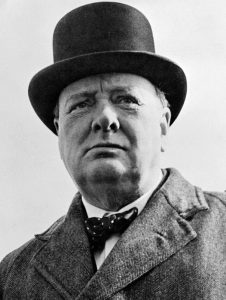
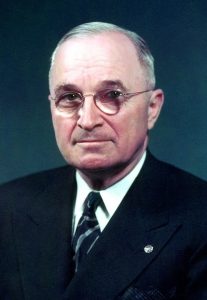 “Who was Winston Churchill?” It’s not a question you often hear, because Winston Churchill had a presence. His features were distinct, but he was not a big man. Churchill stood 5’6½” tall and weighed 187 pounds. He was maybe 35 pounds overweight, but not in bad health, especially considering he smoked as many as ten cigars a day, and when you consider that he lived to be 90 years old, it would seem that none of the normal “risk factors” applied to Winston Churchill. He dealt with daily stress, poor eating habits, excess weight, and smoking, but outlived many people in this era or that. How people felt about Winston Churchill, depended on which side of the subject in question they were on. When he made up his mind on a matter, he rarely changed his mind, and he didn’t back down.
“Who was Winston Churchill?” It’s not a question you often hear, because Winston Churchill had a presence. His features were distinct, but he was not a big man. Churchill stood 5’6½” tall and weighed 187 pounds. He was maybe 35 pounds overweight, but not in bad health, especially considering he smoked as many as ten cigars a day, and when you consider that he lived to be 90 years old, it would seem that none of the normal “risk factors” applied to Winston Churchill. He dealt with daily stress, poor eating habits, excess weight, and smoking, but outlived many people in this era or that. How people felt about Winston Churchill, depended on which side of the subject in question they were on. When he made up his mind on a matter, he rarely changed his mind, and he didn’t back down.
He was responsible for one of the most famous speeches of the Cold War period. It was a speech in which former British Prime Minister Winston Churchill condemned the Soviet Union’s policies in Europe and declared, “From Stettin in the Baltic to Trieste in the Adriatic, an iron curtain has descended across the continent.” Churchill’s Cold War speech is one of the “opening volleys” announcing the beginning of the Cold War. When he was defeated for re-election as prime minister in 1945, he was invited to Westminster College in Fulton, Missouri, which is where he gave this speech. President Harry S Truman joined Churchill on the platform and listened intently to his speech. Expressing praise for the United States, Churchill declared that the United States stood “at the pinnacle of world power.” England and the United States have long had a “friendly, but competitive relationship,” and it would soon become quite clear that a primary purpose of his talk was to argue for an even closer “special relationship” between the United States and Great Britain…the two great powers of the “English-speaking world.” But, would it be in the best interest of the United States to agree?
World War II had ended, and as in any post war situation, things were still pretty chaotic. Nevertheless, it was necessary to set policies, and to organize the losing countries so that things didn’t escalate out of control 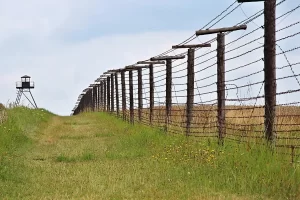
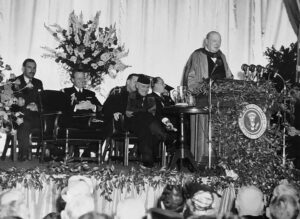 again…not an easy task. The Soviet Union was well known for its expansionistic policies and was unlikely to stop trying to take over its neighbors without some kind of intervention. In addition to the “iron curtain” that had descended across Eastern Europe, Churchill spoke of “communist fifth columns” that were operating throughout western and southern Europe. Churchill compared the Soviet Union to disastrous consequences of the appeasement of Hitler prior to World War II, saying that in dealing with the Soviets there was “nothing which they admire so much as strength, and there is nothing for which they have less respect than for military weakness.” Therefore, without intervention, they would quickly get back to the same disastrous practices they used before, and the war would have to fought all over again.
again…not an easy task. The Soviet Union was well known for its expansionistic policies and was unlikely to stop trying to take over its neighbors without some kind of intervention. In addition to the “iron curtain” that had descended across Eastern Europe, Churchill spoke of “communist fifth columns” that were operating throughout western and southern Europe. Churchill compared the Soviet Union to disastrous consequences of the appeasement of Hitler prior to World War II, saying that in dealing with the Soviets there was “nothing which they admire so much as strength, and there is nothing for which they have less respect than for military weakness.” Therefore, without intervention, they would quickly get back to the same disastrous practices they used before, and the war would have to fought all over again.
The speech was well received by Truman and many other US officials. Everyone knew the truth, and somebody simply had to come right out and say it. They had decided that because the Soviet Union was determined to expand, only a tough stance on a united front would deter the Russians. Churchill’s “iron curtain” phrase immediately entered the official vocabulary of the Cold War. It was a term everyone knew, and it perfectly described the problem. Of course, agreeing with Churchill, didn’t necessarily mean that the US officials enthusiastic about Churchill’s call for a “special relationship” between the United States and Great Britain. They weren’t concerned that Great Britain would again try to have some influence over the United States, but rather they were well aware that Britain’s power was weakening, and the US had no intention of being used as pawns to help support the crumbling British empire.
Of course, the Russian leader Joseph Stalin had a very different view of the speech, saying that it was “war 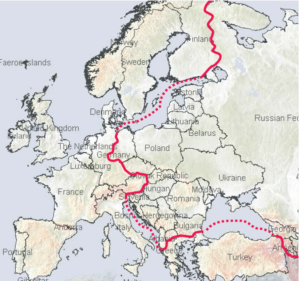
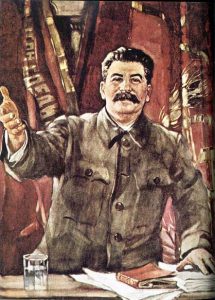 mongering” and referred to Churchill’s comments about the “English-speaking world” as imperialist “racism.” The British, Americans, and Russians, all of whom were allies against Hitler less than a year before the speech, were now drawing the battle lines of the Cold War. It didn’t take long for the similarities between Hitler and the Soviet Union to become glaringly clear, and they had to be stopped. I don’t know why dictators feel the need to enslave other people. The “Iron Curtain” would “come down” like all other forms of tyranny must eventually do, but unfortunately, a lot of lives are lost before victory is achieved.
mongering” and referred to Churchill’s comments about the “English-speaking world” as imperialist “racism.” The British, Americans, and Russians, all of whom were allies against Hitler less than a year before the speech, were now drawing the battle lines of the Cold War. It didn’t take long for the similarities between Hitler and the Soviet Union to become glaringly clear, and they had to be stopped. I don’t know why dictators feel the need to enslave other people. The “Iron Curtain” would “come down” like all other forms of tyranny must eventually do, but unfortunately, a lot of lives are lost before victory is achieved.
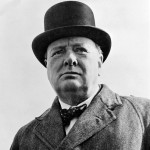 Anytime a battle is waged between good and evil, there is always innuendo. The evil side always tries to deface the good side by calling them warmongers and racists. It doesn’t matter if the evil side is an evil nation, or an evil group within our own country. Whenever the good side tries to take a stand, they are viewed as racist, haters and warmongers. Not much has changed over the years either. If you think all of these accusations are modern day phenomenon, you are wrong. It’s been going on for many years, and has endured to this day.
Anytime a battle is waged between good and evil, there is always innuendo. The evil side always tries to deface the good side by calling them warmongers and racists. It doesn’t matter if the evil side is an evil nation, or an evil group within our own country. Whenever the good side tries to take a stand, they are viewed as racist, haters and warmongers. Not much has changed over the years either. If you think all of these accusations are modern day phenomenon, you are wrong. It’s been going on for many years, and has endured to this day.
On this day, March 5, 1946, former British Prime Minister Winston Spencer Churchill gave a speech condemning the Soviet Union’s policies in Europe and declared, “From Stettin in the Baltic to Trieste in the Adriatic, an iron curtain has descended across the continent.” Many people thought that Churchill’s speech was one of the opening volleys announcing the beginning of the Cold War. After he was defeated for re-election as prime minister of Great Britain in 1945, Churchill was invited to Westminster College in Fulton, Missouri where he gave his speech. President Harry S 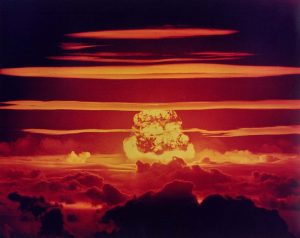 Truman joined him on the platform, listening intently to the speech. Churchill praised the United States as well, declaring it stood “at the pinnacle of world power.” Churchill saw the importance of a closer “special relationship” between the United States and Great Britain…the two great powers of the “English-speaking world” in organizing and policing the post World War II world.
Truman joined him on the platform, listening intently to the speech. Churchill praised the United States as well, declaring it stood “at the pinnacle of world power.” Churchill saw the importance of a closer “special relationship” between the United States and Great Britain…the two great powers of the “English-speaking world” in organizing and policing the post World War II world.
Churchill was worried about the expansionistic policies of the Soviet Union. In addition to the “iron curtain” that had descended across Eastern Europe, Churchill spoke of “communist fifth columns” that were operating throughout western and southern Europe. Churchill drew parallels with the disastrous appeasement of Hitler prior to World War II, and advised that in dealing with the Soviets there was “nothing which they admire so much as strength, and there is nothing for which they have less respect than for military weakness.”
Wisely, Truman and other United States officials received the speech in the spirit it was given. They knew that the Soviet Union was bent on expansion, and that they had to stand tough. Churchill’s “iron curtain” phrase 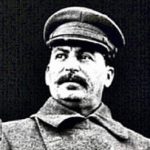 became a part of the official vocabulary of the Cold War era. Some of the United States officials were less than comfortable with the “special relationship” Churchill had spoken of. They knew that the English were valuable allies for the Cold War, they were also aware of Great Britain’s power, and worried about being used a pawns to help support the crumbling British empire. In the Soviet Union, Russian leader Joseph Stalin denounced the speech as “war mongering,” and referred to Churchill’s comments about the “English-speaking world” as imperialist “racism.” The rhetoric never seems to change, does it. The British, Americans, and Russians, all allies against Hitler less than a year before the speech, were drawing the battle lines of the Cold War…and it would be a long 45 year war, lasting from 1946 to 1991.
became a part of the official vocabulary of the Cold War era. Some of the United States officials were less than comfortable with the “special relationship” Churchill had spoken of. They knew that the English were valuable allies for the Cold War, they were also aware of Great Britain’s power, and worried about being used a pawns to help support the crumbling British empire. In the Soviet Union, Russian leader Joseph Stalin denounced the speech as “war mongering,” and referred to Churchill’s comments about the “English-speaking world” as imperialist “racism.” The rhetoric never seems to change, does it. The British, Americans, and Russians, all allies against Hitler less than a year before the speech, were drawing the battle lines of the Cold War…and it would be a long 45 year war, lasting from 1946 to 1991.

 On August 13, 1961, in the hours just after midnight, the East German soldiers began laying down barbed wire and bricks as a barrier between Soviet-controlled East Berlin and the democratic western section of the city. It was a day that would change life in Berlin for the next twenty eight years. In the days that followed, a wall was built to permanently close off access to the west. The citizens of East Berlin became prisoners in their own homes and city, in a prison that was built around them. The road between East and West Berlin had become a one way street. If you wanted in, you couldn’t come back out. Families were separated from each other, and those in the West had to make the choice to go be with family in East Berlin…and captivity, or not. The wall became the symbol of the Cold War. It was a literal Iron Curtain, dividing Europe.
On August 13, 1961, in the hours just after midnight, the East German soldiers began laying down barbed wire and bricks as a barrier between Soviet-controlled East Berlin and the democratic western section of the city. It was a day that would change life in Berlin for the next twenty eight years. In the days that followed, a wall was built to permanently close off access to the west. The citizens of East Berlin became prisoners in their own homes and city, in a prison that was built around them. The road between East and West Berlin had become a one way street. If you wanted in, you couldn’t come back out. Families were separated from each other, and those in the West had to make the choice to go be with family in East Berlin…and captivity, or not. The wall became the symbol of the Cold War. It was a literal Iron Curtain, dividing Europe.
When World War II ended in 1945, Germany was divided into four Allied occupation zones. Berlin, the German capital, was likewise divided into occupation sectors, even though it was located deep within the Soviet occupation zone. The future of Germany was a source of contention. Disagreements brought tensions which grew when the United States, Britain, and France moved in 1948 to unite their occupation zones into a single autonomous entity known as the Federal Republic of Germany or West Germany. In response, the Soviet Union launched a land blockage of West Berlin in an effort to force the West to abandon the city. The United States and Britain responded with a massive airlift of food and supplies to West Berlin, and in May of 1949, the Soviet Union ended the blockade in defeat.
That didn’t remove the tensions that plagued the area, however. By 1961 the Cold War tensions were running high again. The East German people became very dissatisfied with life under the communist system. West Berlin was a gateway to the West and Democracy. Between 1949 and 1961, about 2.5 million East Germans fled East Berlin to West Germany. By August of 1961, East Germans were crossing into West Germany at a rate of 2,000 people per day. Many of the refugees were skilled laborers, professionals, and intellectuals, and their loss was having a devastating effect on the East German economy. The Soviets had to figure out a way to stop the exodus, and its devastating effect on the economy. Soviet leader Nikita Khruschev made the decision to close off access from East Berlin to West Berlin.
Then came the night of August 13, 1961. The citizens of East Berlin could no longer freely pass into West Berlin. The West was taken by surprise, and threatened a trade embargo against East Germany as a retaliatory measure. The Soviets responded that such a measure would bring new blockades. The West did nothing, and the East German authorities grew more and more bold. They began closing of more and more checkpoints between East and West Berlin. On August 15, they began replacing barbed wire with concrete. The wall was supposedly designed protect their citizens from the influence of decadent capitalist culture. In realty, it protected the East German authorities from scrutiny as they did what they wanted with out retaliation.
Once it was up, the only way for East Berliners to escape the oppression of their government was to take their chances to get across in whatever way they could dream up. People attempted escape by train, tight rope, zip lines, hot air balloons, through old tunnels, impersonating soldiers, a stolen tank, and swimming. Many of these attempts ended in death for the person attempting escape. It didn’t stop them. They were so determined to live freely. About 5,000 East Germans managed to escape across the Berlin Wall to the West, but the frequency of successful escapes dwindled as the wall was increasingly fortified. Thousands of East Germans were captured during attempted crossings and 191 were killed.
On June 12, 1987 President Reagan made his great “tear down this wall” speech, but the wall remained until 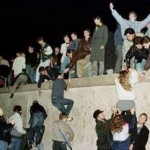
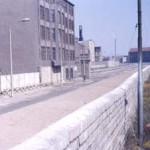 1989, when the democratization movement began sweeping across Eastern Europe. On November 9, 1989 travel restrictions were eased. Jubilant Berliners climbed on top of the Berlin Wall, painted graffiti on it, and removed fragments as souvenirs. The next day, East German troops began dismantling the wall. In 1990, East and West Germany were formally reunited. For those in the free world, it would be almost impossible to completely understand just what Communism was like, but those who lived it, would never forget it, if they even lived through it, which many didn’t.
1989, when the democratization movement began sweeping across Eastern Europe. On November 9, 1989 travel restrictions were eased. Jubilant Berliners climbed on top of the Berlin Wall, painted graffiti on it, and removed fragments as souvenirs. The next day, East German troops began dismantling the wall. In 1990, East and West Germany were formally reunited. For those in the free world, it would be almost impossible to completely understand just what Communism was like, but those who lived it, would never forget it, if they even lived through it, which many didn’t.

